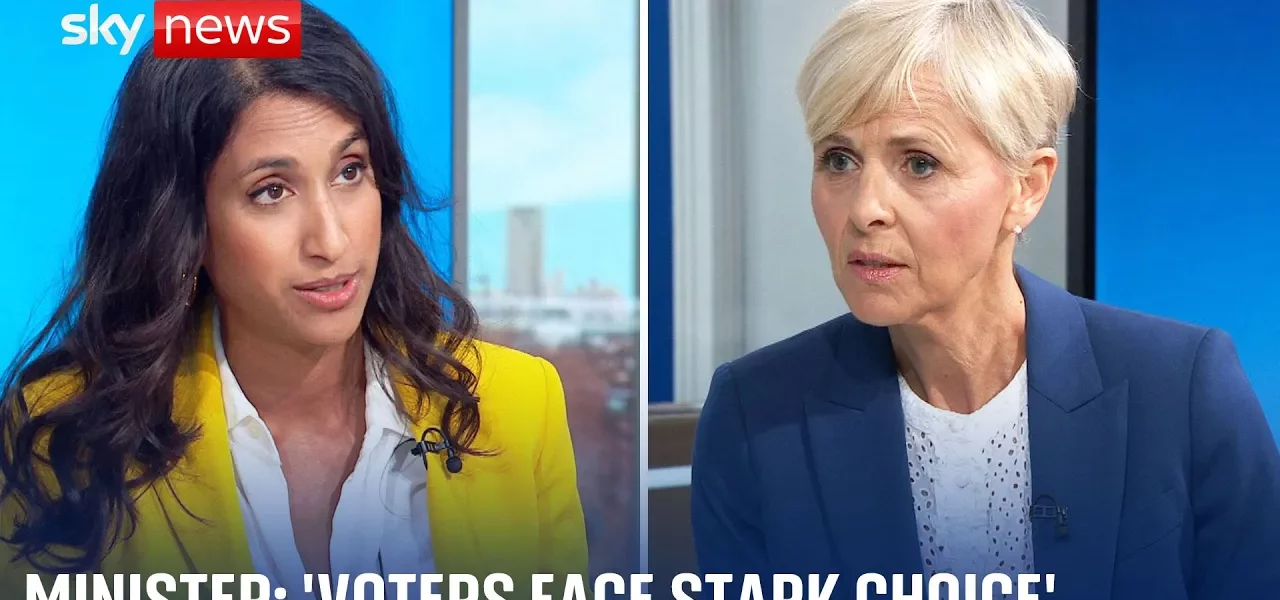Energy Secretary CLA Coutinho Discusses Energy Price Cap and Government Plans

This article explores the insights of Energy Secretary CLA Coutinho regarding the recent 7% fall in the energy price cap, its implications for households, and the government’s strategy to ensure affordable energy. Discover how these changes impact energy bills and the ongoing debate surrounding energy security and renewable energy investments.
Introduction
The recent announcement of a 7% decrease in the energy price cap by the Office of Gas and Electricity Markets (Ofgem) has sparked significant discussions about energy costs and government strategies. Energy Secretary CLA Coutinho joined us to share his insights on this development. Over the past few years, many households have faced unprecedented challenges with rising energy bills, making this news particularly noteworthy. The reduction is seen as a beacon of hope, but the conversation does not end here; it opens the floor to deeper discussions about energy security, pricing comparisons with Europe, and the future of energy in the UK.
Impact of the Energy Price Cap Reduction
The energy price cap is a crucial factor in determining how much households pay for their energy. The recent reduction is significant, as it represents the second largest cut in energy prices within a year. This section delves into the implications of this reduction.
Details of the Price Cap Reduction
The Ofgem announcement revealed that the average household will see a decrease of approximately £122 on their energy bills. This follows an earlier drop of nearly £250 in April. These reductions are welcomed news for many, especially those who have struggled to manage their energy expenses amidst rising costs.
Comparative Analysis with European Prices
Despite the positive news, energy prices in the UK remain significantly higher than pre-Ukraine invasion levels. However, it is important to note that:
- UK gas prices are now lower on average than those in many European countries.
- Approximately 75% of UK households rely on gas for heating, which has seen a decrease in price relative to European averages.
- Electricity bills are also under scrutiny, with new regulatory plans set to ensure they remain manageable.
Government Strategies for Managing Energy Costs
In response to the challenges faced by households, the government is implementing several strategies aimed at maintaining lower energy costs for consumers. This section outlines these initiatives.
Enhancing Market Competition
One of the key strategies involves fostering greater competition within the energy market. By encouraging more players in the market, the government aims to:
- Provide consumers with more options for energy suppliers.
- Encourage innovation and better pricing strategies among energy companies.
- Implement fairer standing charges that reflect actual usage.
Regulating Energy Brokers
Another critical initiative involves better regulation of energy brokers. The aim is to protect consumers from misleading practices and ensure transparency in energy pricing.
The Political Landscape of Energy Policy
Energy policy in the UK is also heavily influenced by political discourse. The contrasting plans of the current government and the opposition, particularly the Labour Party, shape public perception and future strategies.
Labour’s Energy Plans
The Labour Party has proposed ambitious plans that they claim will secure the country’s energy future and reduce bills. However, the government has raised concerns about the feasibility and implications of these plans, including:
- Potential harm to energy security.
- Increased household bills due to higher taxes.
- Uncertainty regarding the clarity and viability of their renewable energy proposals.
Government’s Position on Climate Goals
CLA Coutinho emphasized the government’s commitment to achieving net-zero emissions while balancing affordability for consumers. The government’s targets extend to 2035, which they argue allows for the development of new, more efficient energy sources, including factory-built nuclear power.
Conclusion
In conclusion, the recent energy price cap reduction is a significant step towards alleviating the financial burden on households struggling with high energy bills. However, the path forward is complex, with ongoing debates surrounding energy security, political strategies, and the role of renewable energy. As we move closer to the general election, it is crucial for voters to consider the implications of the proposed plans from both major parties. For further insights and updates on energy policies, stay connected and informed.
Explore more on energy policies and their impact on households
“`




